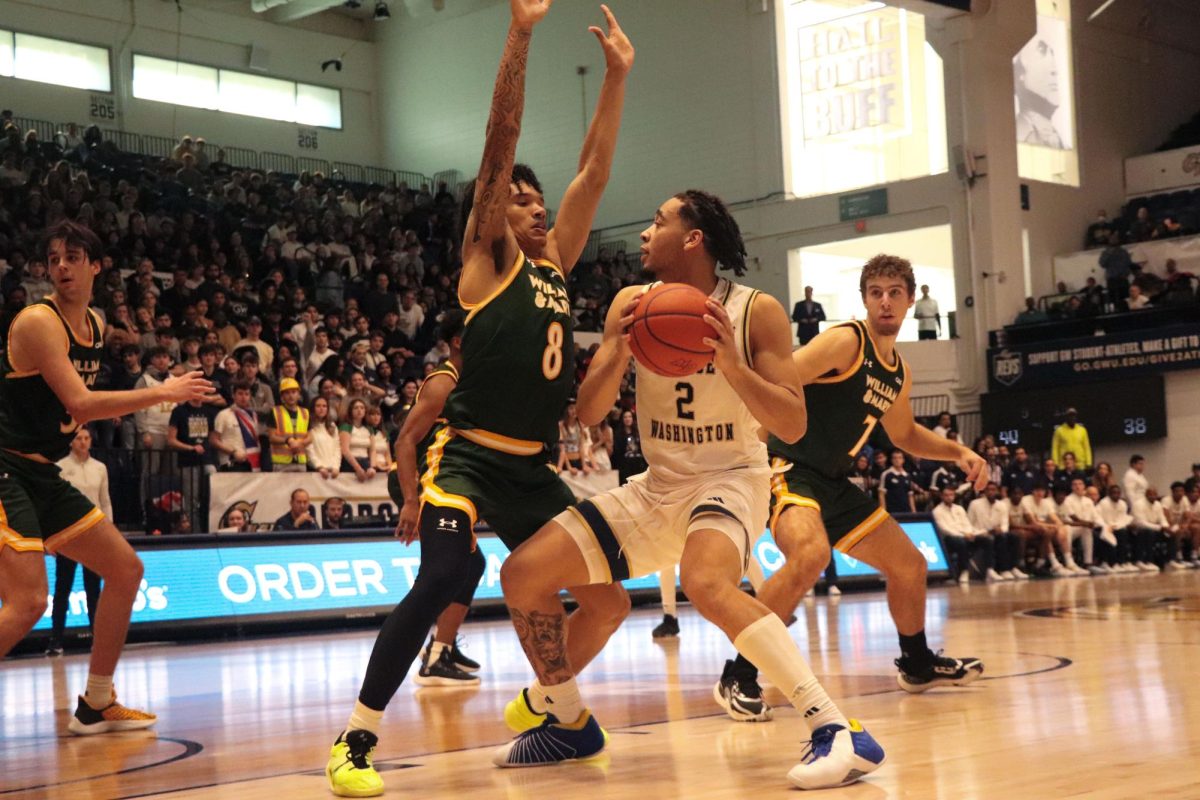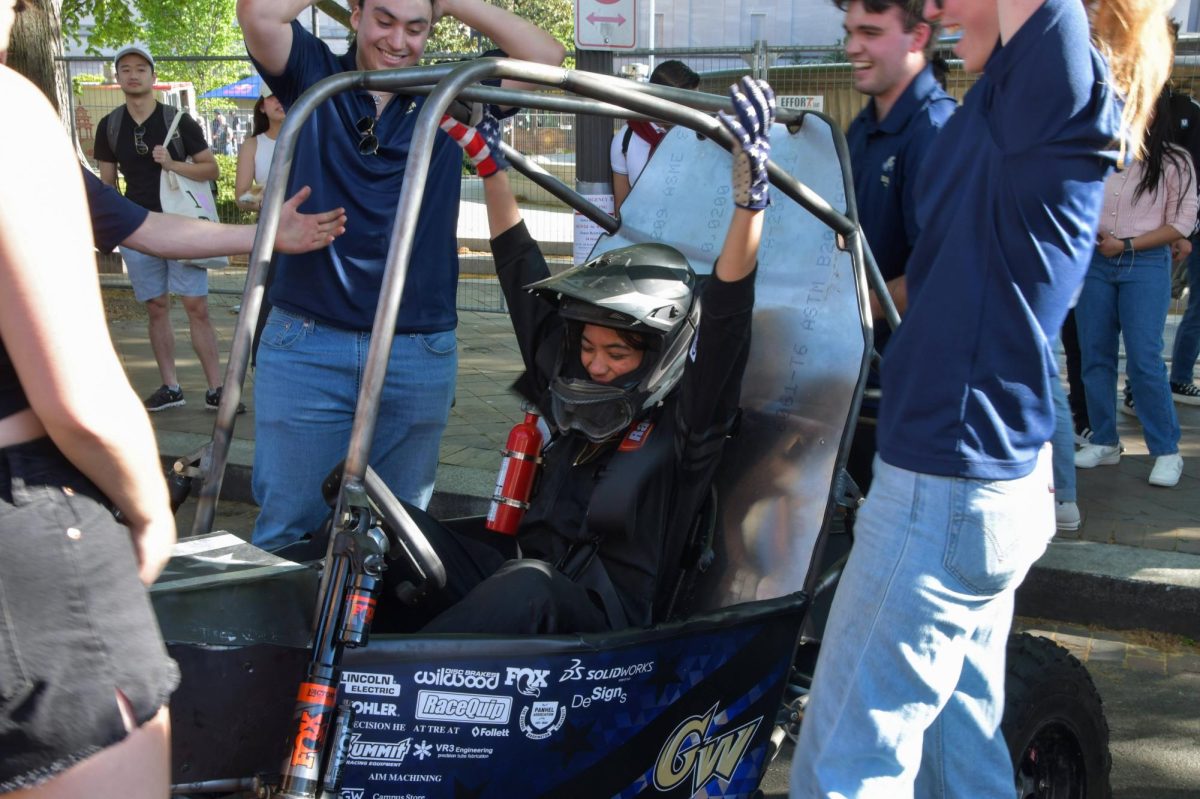Junior guard Nya Lok was part of South Sudan’s first women’s international basketball team this summer.
The FIBA Women’s AfroBasket 2021 Zone 5 Qualifiers marked the first time South Sudan was represented in women’s basketball at the international level since gaining independence in 2011 and becoming a FIBA member in 2013. Despite dropping all five games to the likes of Rwanda, Egypt and the tournament champions Kenya, Lok said being part of the team was an experience “beyonds words.”
“Being able to play for your own country and represent the country that you’re born into and raised in that culture, it was such a blessing to just be able to hold that name on your chest and be able to say that, ‘Yeah, I was on the first national team,’” Lok said.
Lok played alongside athletes like first-ever South Sudanese WNBA player Adut Bulgak. The competition also marked the first time Lok had been back to the continent since she was born in a refugee camp in Ethiopia.
Lok’s parents fled Sudan in the midst of civil war and eventually settled in Melbourne, Australia where she was raised. Despite living so far away from her native country, Lok said her family made sure to instill her culture within her from a young age.
“We would always speak our native language, which was Nuer, we’d always eat our cultural foods, my mom would always have our cultural songs playing in the background, we would watch our cultural dances,” Lok said. “So it was really ingrained in us to make sure that we never lost that side of us, that side of our identity.”
Though Lok’s parents didn’t know much about basketball, they stayed up all night watching her play in the FIBA qualifiers. Lok’s father even called her after the games to give her advice.
“It brought tears to their eyes,” Lok said. “For them, it was something amazing to just see South Sudan on my chest.”
Like her parents, Lok hadn’t played much basketball or known much about the sport when she was younger. She played soccer for much of her youth, until she eventually picked up organized basketball when she volunteered to fill in an extra spot on a team with some friends, launching her fledgling career and leading her to an eventual spot on GW’s roster.
Lok, the middle child of four brothers and three sisters, said she comes from a family of athletes who play sports ranging from soccer to Australian rules football. She said she used to go out to the park and duel her older brother on the court. Nowadays she gives advice to her younger siblings on the game.
Though Lok is just in her fifth year of playing basketball, she slotted in as a point guard for the first time on the national team and was named to the tournament’s All-Star Five after averaging 12 points and 3.2 assists per game. Lok said she was “surprised” and “blessed” to be recognized, learning after talking to one of the commentators that she won not only because of her individual performance, but also what she did off the court.
“For me, that really made me realize that basketball is not just an on the court thing, but it’s what you do with your teammates,” Lok said. “It’s what you do off the court as well that people see.”
Lok said she and the rest of the team wanted to serve as an example for other women to be able to choose their own path and purpose in life.
“A lot of us just wanted to get a message out there to make sure that girls back in South Sudan know that they’re more than just marriage material, they’re more than just women that should be housewives.” Lok said. “Just to let them know that we were able to fight through things like that, and that we were able to get somewhere with sport or whatever we wanted to do.”
After the tournament, Lok said she saw a video from Juba, the capital of South Sudan, of hundreds of girls taking part in a basketball camp in the days following the tournament. She said many girls had never gone to the training camps before.
“A lot of parents didn’t really think there was a purpose in sport for women, they thought men for sure, but for women, not really,” Lok said. “So a lot of parents never really let their children go.”
Lok said her team’s performance on the international stage showed parents their daughters could have a future in sports.
Following the FIBA qualifiers, Lok said she flew straight from Rwanda to the Colonials’ summer workouts. Though Lok showed up later than most of her teammates, head coach Caroline McCombs said Lok wasted no time in making herself known on and off the court. She said her work ethic and versatility on offense and defense will make her an impact player.
“She has a lot more than just her athleticism and her versatility,” McCombs said. “She has a tremendous skill set. She is a phenomenal three-point shooter, she can get to the rim and she also has very good size. So we’ll look to post her up on some mismatches.”
Prior to her move to GW, Lok helped lead Midland College to a 13-4 record and the Western Junior College Athletic Conference Tournament Championship game. The 5’11’’ guard started all 17 games, averaging 14.2 points and 7.2 rebounds a game to earn a spot on the All-WJCAC First Team.
Though Lok will most likely not be featured in a point guard role in the upcoming season with GW, McCombs said her experience with the position at the international level will pay dividends for the team.
“It just added to her decision making abilities and just a different perspective of what it is like to run and lead a team,” McComb said. “Nya is a very vocal leader as well. She’s a positive encourager of her teammates. Her voice is going to be heard at all times.”








